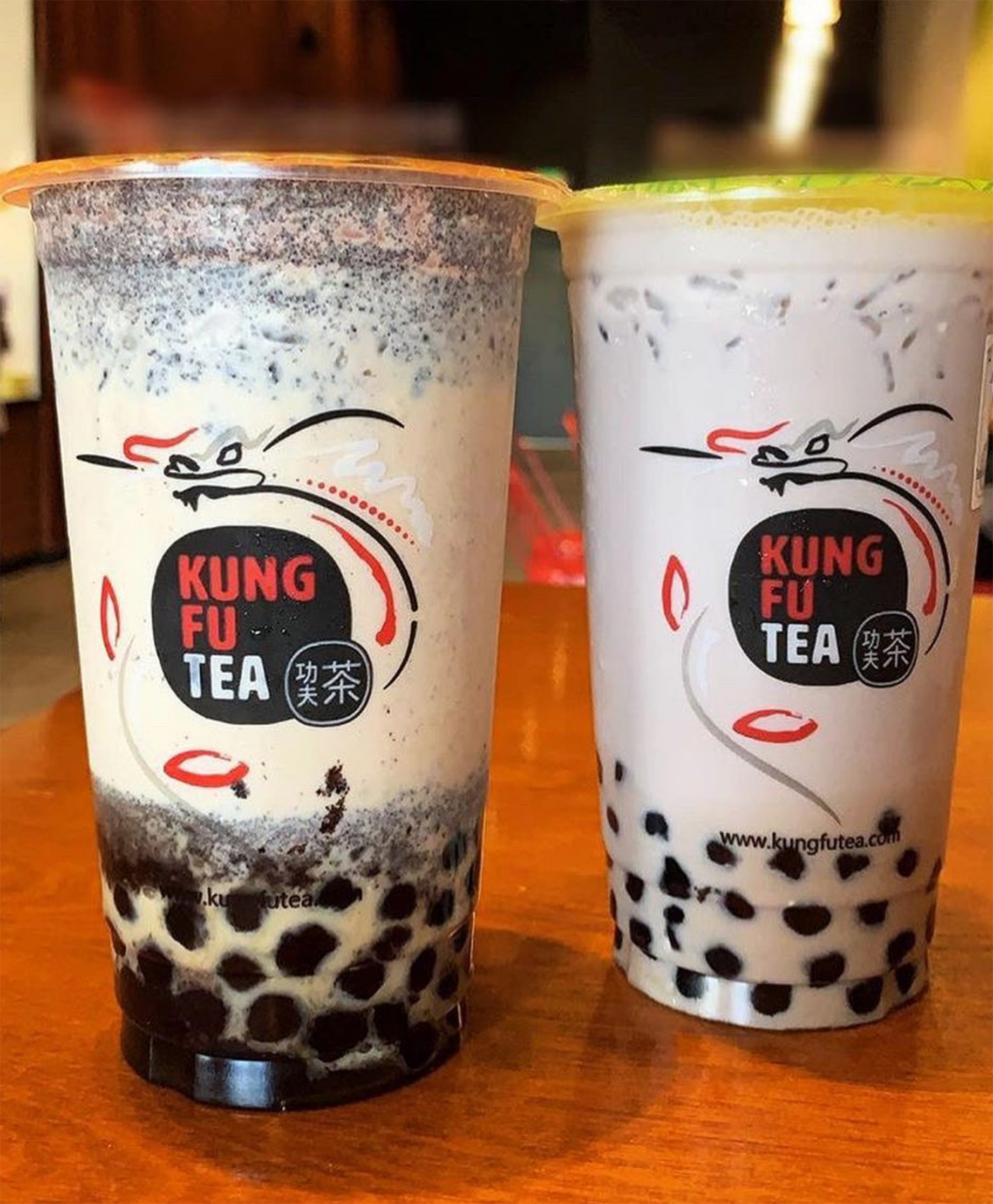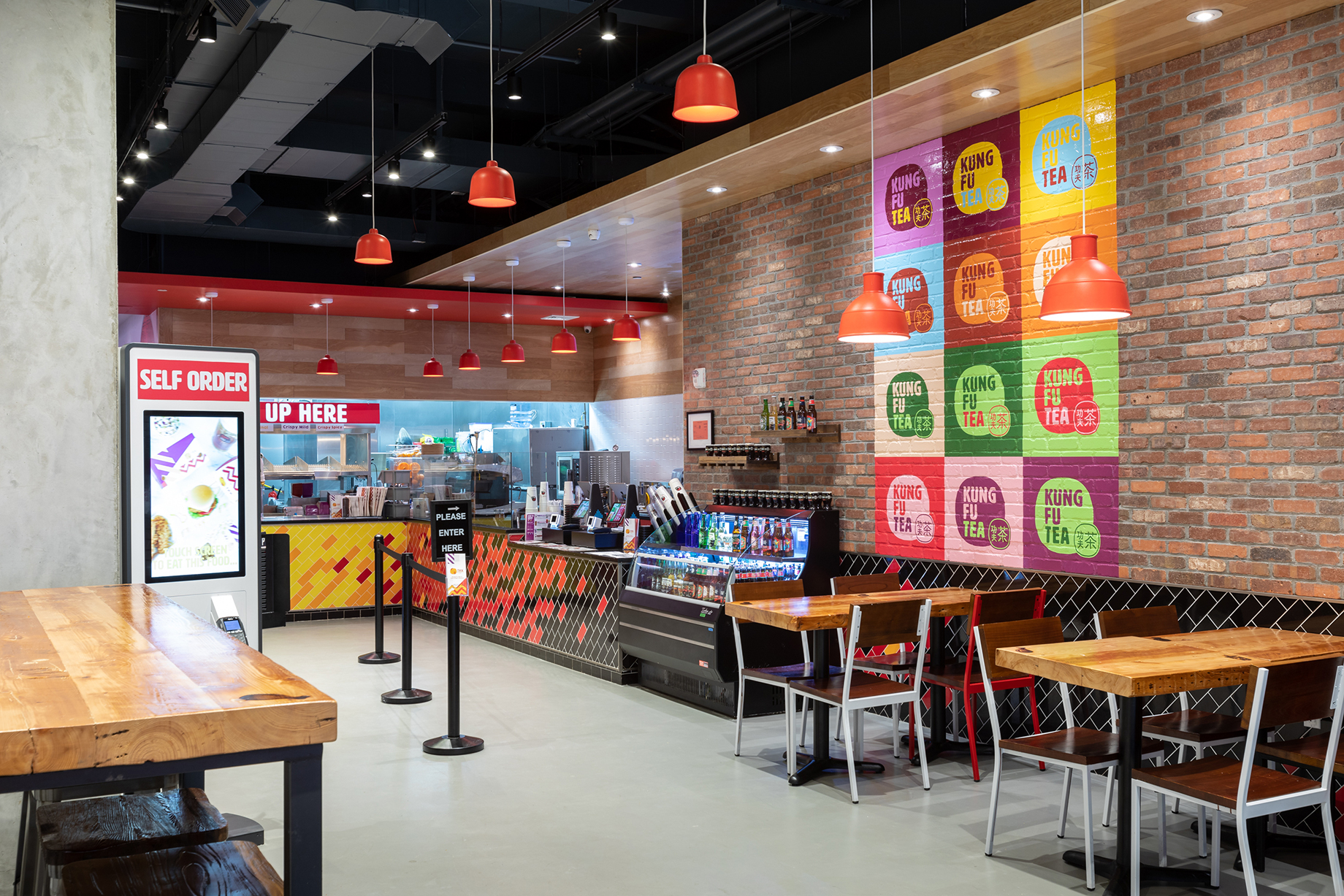Bubble tea, a flavored iced tea typically served with milk and chewy tapioca balls, originated in Taiwan in the 1980s and quickly became a favorite among young people there. Today there are some 21,000 bubble tea shops in Taiwan, plus thousands more across other East Asian nations, from South Korea to Singapore. And now bubble tea is fast gaining popularity beyond the Asian community.

New York City–based Kung Fu Tea operates nearly 170 stores across 32 U.S. states and in the District of Columbia
Bubble tea shops have become part of the tapestry in many North American cities, particularly those with large Asian populations, such as Los Angeles, New York City, San Francisco and Toronto. Technomic, a Chicago-based food-services industry consulting firm, estimates that there are well over 1,000 of these shops operating in the U.S. — most of them small regional chains. “Bubble tea is a category defined by independent and small operators,” said Aimee Harvey, a Technomic managing editor who covers the food sector through several of the firm’s business-to-business titles. But several growing chains are pushing into new markets in an effort to take the specialty mainstream, and among these, New York City–based Kung Fu Tea is the largest, with 166 U.S. stores across 32 states and the District of Columbia.
“They are the brand that is currently communicating the ‘culture’ — in their word — of bubble tea,” Harvey said of Kung Fu Tea. The chain’s U.S. sales rose by 59 percent last year, she notes. “They’re differentiating themselves by speaking directly to the Gen-Z consumer, by making bubble tea cool, with lots of different flavors, limited-time offers, promos tied to gaming and rewards linked to social media.”
Kung Fu Tea, which has also expanded into Australia, Canada and Vietnam, says it anticipates opening about 50 new U.S. stores this year, including its first forays into Connecticut, New Hampshire and Tennessee. The goal is to have about 500 U.S. stores and 100 international shops operating within five years, says Darren Chen, Kung Fu Tea’s franchise sales manager. Last year the company launched a social-media promotion it calls National Bubble Tea Day, offering free drinks to anyone who would download its app.

Kung Fu Tea anticipates opening about 50 U.S. stores this year and also has a presence in Canada, Australia and Vietnam
There are other names out there as well. Chino, Calif.–based Lollicup Coffee & Tea, for one, opened 36 U.S. stores since pioneering the bubble-tea trend in Southern California during the early 2000s. Big Orange Bubble Tea is a Canadian chain that entered the U.S. with four stores on the West Coast. And several Taiwanese brands have begun operating in the U.S. through franchises: Chatime, CoCo Fresh Tea & Juice, Gong Cha, Quickly Tea House and ViVi (which promotes itself as the world’s largest bubble-tea chain, with some 2,500 stores across 13 countries and in Hong Kong).
“The bubble tea concepts that do well [in the U.S.] are name brands coming from Asia, or which have an experiential factor, where you can sit down and hang out,” said Blake Kaplan, a vice president in the Orange County, Calif., office of JLL. Kaplan has made deals with several bubble-tea retailers over the past year.
The regional players on the expansion path include Skokie, Ill.–based Chill Bubble Tea, which operates six shops in the Chicago metro area, and Honeyboba, which has 13 stores between metro Los Angeles and Hawaii. Austin, Texas–based Teapioca Lounge, which has 10 shops in Texas, has opened stores also in Oklahoma, Florida and Pennsylvania.
Bubble-tea retailers have traditionally and naturally gravitated toward Asian population centers and to locations near other Asian specialty retailers. “They are not going into a heavily Hispanic or African-American area,” said Kaplan. “They are going to open next to Korean [food] concepts and into malls with affluent Asian shoppers.” Still, as the beverage gains familiarity among American consumers, that, too, is beginning to change. “We’ve seen some emerging bubble-tea shops come out of North Carolina,” noted Harvey.
“Bubble-tea stores may lend themselves well to mall food courts, where its packaging in tall, clear cups and with wide, fluorescent-colored straws is likely to attract converts”
Bubble-tea stores may lend themselves well to mall food courts, where the drink’s packaging (it is generally served in tall, clear cups with wide, fluorescent-colored straws) is likely to attract converts. “There’s no reason bubble tea shouldn’t be a hit with kids when they’re hanging out at the mall,” Harvey said. “Bubble teas are fun to drink and feature sweet, fruity flavors like mango, honeydew and passion fruit. They think of specialty coffee as a treat, and specialty tea is poised to be the next wave with kids.”
None of this is lost on Kung Fu Tea. Of its U.S. stores, the bulk of which operate in downtown urban areas, 22 are based in malls. And the company intends to open even more mall shops, Chen says. Its shops typically measure between 800 and 1,500 square feet, though some could be as small as 200 square feet. The chain likes high schools, colleges and similar venues frequented by what it sees as its customer base — a base it believes is broadening.
“The bubble tea industry is transitioning from Asian specialty drinks to broader, more accessible flavors,” Chen said. “It’s just beginning its ascent.”
Leasing inquiries for Kung Fu Tea may be directed to Darren Chen, franchise sales manager, at darrenchen@kfteausa.com.
By Jesse Serwer
Contributor, Shopping Centers Today


